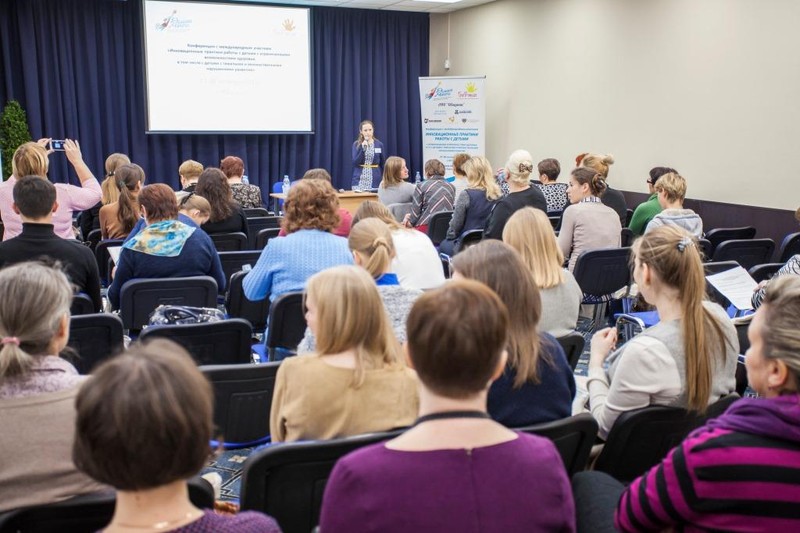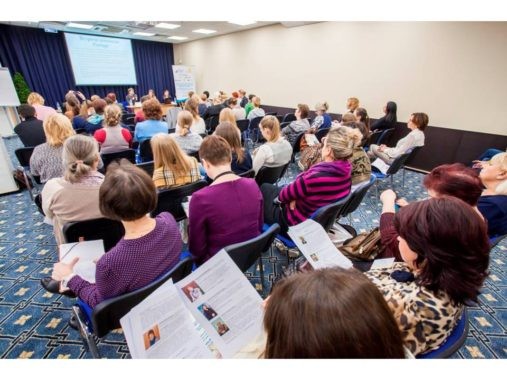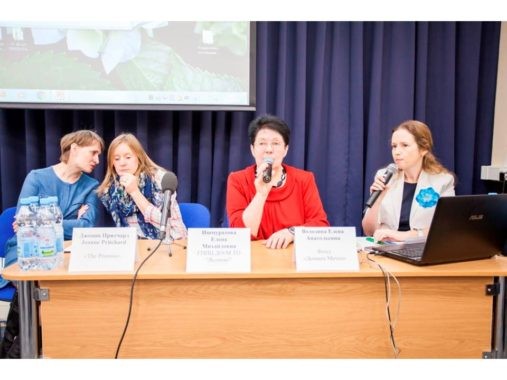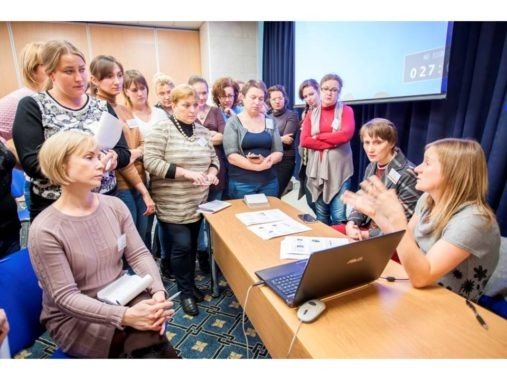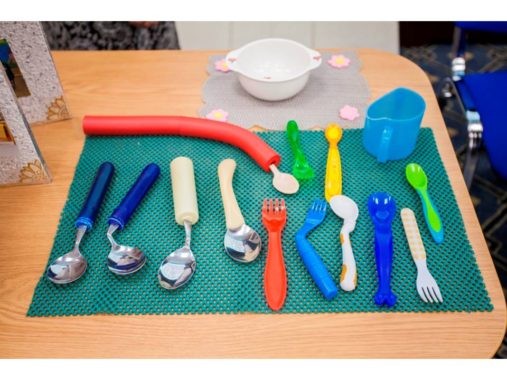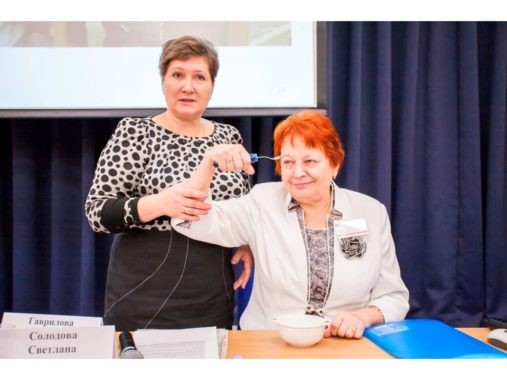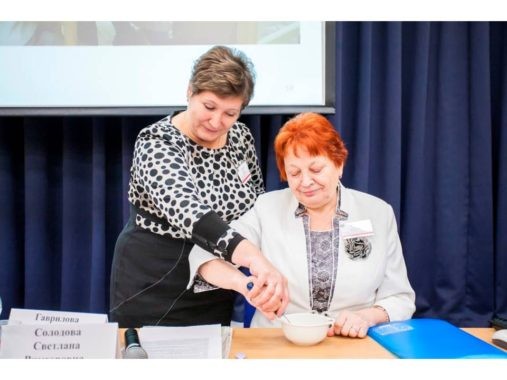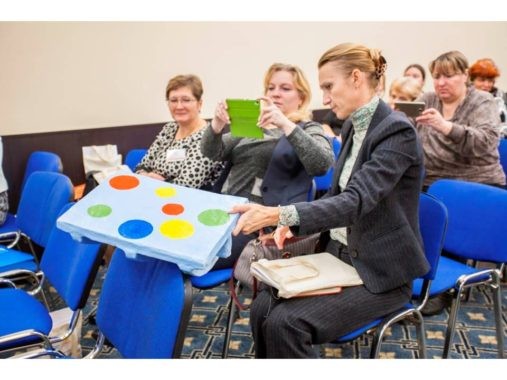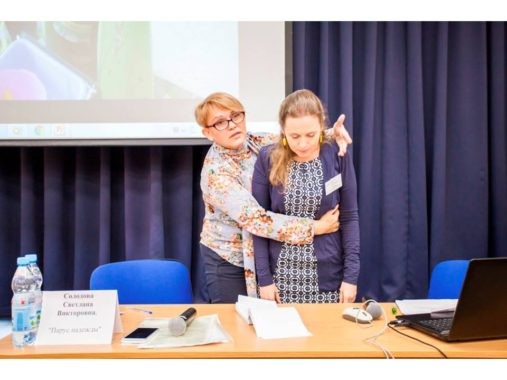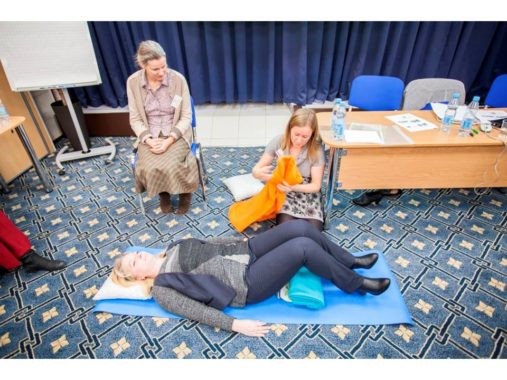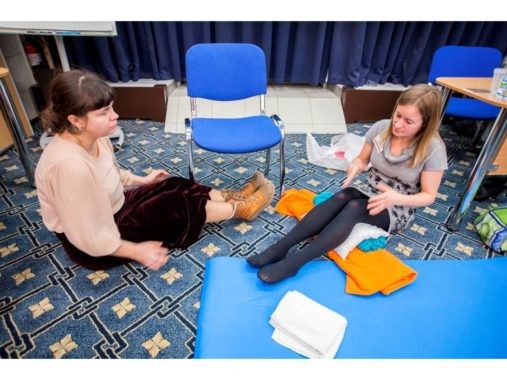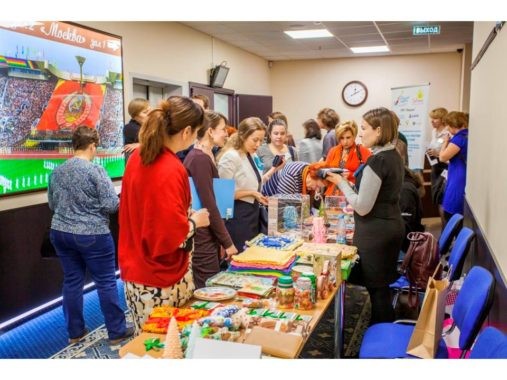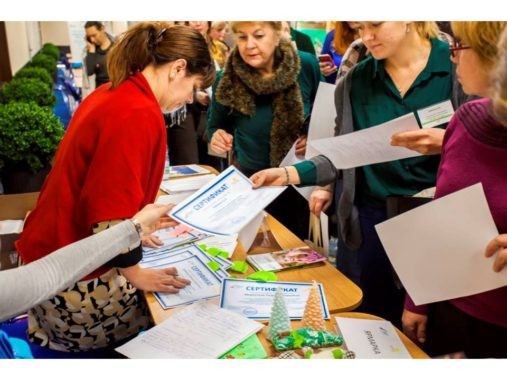In Moscow, hundreds of bed ridden orphans receive only the care and nourishment from a bottle.
How is it that in the village of Ryazan region most “bedridden” children in the group “Mercy” orphanage for mentally retarded children have learned to sit, stand, walk on their own or with support, eat by themselves, take care of themselves and now possess skills that were previously not available?
How do we give the opportunity to develop and improve the quality of life for orphaned children with disabilities who are in other institutions in public care. Here is what was discussed.
October 27-28, Moscow hosted a conference to draw attention to one of the most amazing groups of children. Professionals working with children “Mercy” group in Moscow were able to learn that there are techniques that allow you to develop children who previously were stigmatized as bed ridden.
Currently, only palliative care is provided in the “Mercy” group – care and nutrition. However, children who were engaged for several years according to the procedure “Portage” and “vertical integration”, already running around the corridors of the orphanage. “Canis-therapy” – is another innovative method of working with young pupils with severe and multiple disabilities.
Supported by examples to argue – innovative techniques were presented and they can be a breakthrough in the development of orphan children with disabilities and families of children with severe mental and physical development.
The conference was held with the support of:
− Potyaevoy Tatiana Alexandrovna and the Office of the Commissioner for Human Rights in Moscow;
− Batysheva Tatiana Timofeevna (Director of the Scientific and Practical Center of Pediatric psychoneurology Moscow Health Department, Senior Specialist on Child Rehabilitation Ministry of Health of the Russian Federation, Head Specialist of Moscow Health Department of Pediatric Neurology, Member of Moscow City Duma, President of the National Experts Association for Cerebral Palsy and the dual disorders, MD, Ph.D., professor Honored doctor of Russia, member of the Presidium of the All-Russian society of neurologists, expert of the European Academy of Childhood disability (Karolinska Institute, Stockholm, Sweden);
− Vicki Tsiganova (Russian singer, actress, composer).
The participants represent 55 organizations: 5 Rehabilitation Centers, 8 agencies and education institutions, 15 Centers that promote family education, 11 non-profit organizations, 23 private parties. The participants included: Members of the Governing NGO boards, directors, deputy directors, heads of departments of medical rehabilitation, diagnostic departments, analysis and forecasting, Department of day care, social rehabilitation, socio-cultural and vocational rehabilitation services for family units and support foster families, offices of rehabilitation diagnostics and offices of social diagnosis.
Professional composition of participants: leaders, teachers, psychologists, educators, psychologists and health psychologists, oligophrenopedagogs Methodists, speech pathologists teachers, primary school teachers, educators, speech pathologists, speech therapists, specialists in physical therapy, doctors, trauma, orthopedists, neurologists, inclusion coordinators, facilitators and program managers, experts in social work professionals, comprehensive rehabilitation specialists to work with the family, foster parents and guardians, lawyers, students and volunteers (164 participants).
The conference was attended by experts from Russia: Moscow and Moscow region, Ryazan and the Ryazan region, Voronezh, as well as from the UK.
Delegates met:
− On the theory and successful experience of individual work with children on the model of social practice “Portage” (foreign and Russian experience).
− With possibilities of rehabilitation of children with severe and multiple disabilities, including children group “Mercy” by rehabilitation and medical work on the method of “vertical integration”.
− the possibility of using “Canis-therapy” as a psychotherapeutic technique that promotes mental, emotional skills, the impact on motor function, motor skills to children with HIA in children’s residential care.
The participants discussed a wide range of practical, ethical, organizational and management issues to improve the quality of life and rehabilitation of children with the most severe disabilities, including children’s groups “Mercy”. The reports reflected the practical and methodological support for the rehabilitation of children with disabilities:
− Learning Model “Portage” – the experience of successful use in the world and in Russia, from the pilot projects – to the practice of daily work.
− Experience with model “Portage” in the complex rehabilitation of children of department of mercy GBSU Ryazan region “Elatomsky orphanage for mentally retarded children.”
− Application of the model of “Portage” in terms of psycho-pedagogical center GBU GPPTS dogma TO “Yasenevo” (Moscow).
− Solving problems in eating and swallowing in children (for “Portage”).
− The use of self-made of papier-mache special tools and furniture for children with developmental disabilities (for “Portage”).
− The use of postural control (on the “Portage”).
− The value of verticalization in the rehabilitation of children with severe and multiple disabilities.
− «Canis-therapy” as a method of sensory integration of children with disabilities being cared for in institutions.
The conference marked the high results of the above practices in institutions for orphaned children and working with families raising children with disabilities, as well as the timeliness and relevance of attracting the attention of legislative and executive authorities, all of the professional community of social protection of workers , education and health to the problem of improving the quality of life of children with severe and multiple disabilities who are in public care.
The participants came to the conclusion that:
1. Inclusion “Portage” practices, “vertical integration”, “Canis-therapy” in the program,
plans to work with children with developmental disorders, including severe and multiple.
2. Centralized training child care staff and rehabilitation centers for practice work “Portage”.
Participants of the conference, agreed on a common practice-oriented position within the meaning of the basic directions of the practical implementation of development goals and to improve the quality of Russia’s social services for children with severe and multiple disabilities, made the following proposals for their further development.
We request the Department of Social Protection of Moscow and head of the Center to promote family education, centers for families and children, as well as other relevant organizations that provide social services to children with severe and multiple disabilities:
1. Read the practices “Portage”, “vertical integration”, “Canis-therapy” and the successful experience of their use in Moscow and the Ryazan region.
2. Take into account the results of 10 years of working professionals with children group “Mercy”, which resulted in the majority of “lying” and “palliative” of children as a result began to sit, stand. walk independently or with support, to learn how to eat, take care of themselves and to communicate with adults and other children and have access to education.
3. Take measures to improve the quality of life for children “Charity” category in Moscow, given the experience of colleagues in the Ryazan region.
4. To promote the training of employees of organizations that provide assistance to children with disabilities, including Group “Mercy”, said practices.
5. Promote in different organizations in the work with children with developmental disorders, including severe and multiple, practices “Portage”, “vertical integration”, “Canis-therapy”.
6. Take steps to ensure that the needs of children with severe and multiple disabilities (including those with cerebral palsy and other severe developmental disorders of the musculoskeletal system), as well as to ensure the rights of these children to health care, orthopedic care and rehabilitation wards Centers promote family education group “Mercy”.
7. Create conditions to promote family education centers with the children of the “Mercy” and “bedridden” children, children who are considered palliative begin to engage podiatrists, massage therapists, in IPR children timely recommendations to doctors and children in this category will have the chance to get up on their feet and live a more fulfilling life.
Adopted by the participants of the conference unanimously 10/28/2016
